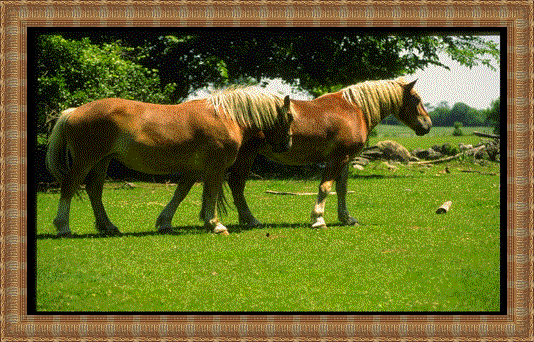John the Baptist, the forerunner of Christ,
received his early training from his parents. The greater portion
of his life was spent in the wilderness, that he might not be
influenced by beholding the lax piety of the priests and rabbis
or by learning their maxims and traditions, through which right
principles were perverted and belittled. The religious teachers
of the day had become so blind spiritually that they could hardly
recognize the virtues of heavenly origin. So long had they cherished
pride, envy, and jealousy that they interpreted the Old Testament
Scriptures in such a manner as to destroy their true meaning.
It was John's choice to forgo the enjoyments and luxuries of
city life for the stern discipline of the wilderness. Here his
surroundings were favorable to habits of simplicity and self-denial.
Uninterrupted by the clamor of the world, he could here study
the lessons of nature, of revelation, and of providence. The
words of the angel to Zacharias had been often repeated to John
by his God-fearing parents. From his childhood his mission had
been kept before him, and he accepted the holy trust. To him
the solitude of the desert was a welcome escape from the society
in which suspicion, unbelief, and impurity had become well-nigh
all-pervading. He distrusted his own power to withstand temptation
and shrank from constant contact with sin lest he should lose
the sense of its exceeding sinfulness.
But the life of John was not spent in idleness,
in ascetic gloom, or in selfish isolation. From time to time
he went forth to mingle with men, and he was ever an interested
observer of what was passing in the world. From his quiet retreat
he watched the unfolding of events.
With vision illuminated by the Divine Spirit, he studied the
characters of men, that he might understand how to reach their
hearts with the message of heaven.
Christ lived the life of a genuine medical
missionary. He desires us to study His life diligently, that
we may learn to labor as He labored.
His mother was His first human teacher.
From her lips, and from the scrolls of the prophets, He learned
of heavenly things. He lived in a peasant's home, and faithfully
and cheerfully He acted His part in bearing the household burdens.
He had been the Commander of heaven, and angels had delighted
to fulfill His word; now He was a willing servant, a loving,
obedient son. He learned a trade and with His own hands worked
in the carpenter's shop with Joseph. In the simple garb of a
common laborer He walked the streets of the little town, going
to and returning from His humble work.
With the people of that age the value of things
was determined by outward show. As religion had declined in power,
it had increased in pomp. The educators of the time sought to
command respect by display and ostentation. To all this the life
of Jesus presented a marked contrast. His life demonstrated the
worthlessness of those things that men regarded as life's great
essentials. The schools of His time, with their magnifying of
things small and their belittling of things great, He did not
seek. His education was gained from heaven-appointed sources,
from useful work, from the study of the Scriptures and of nature,
and from the experiences of life-- God's lessonbooks, full of
instruction to all who bring to them the
willing heart, the seeing eye, and the understanding heart.
"The Child grew, and waxed strong
in spirit, filled with wisdom: and the grace of God was upon
Him." Luke 2:40.
Thus prepared, He went forth to His mission, in every moment of His contact with men exerting upon them an influence to bless, a power to transform, such as the world had never witnessed.
